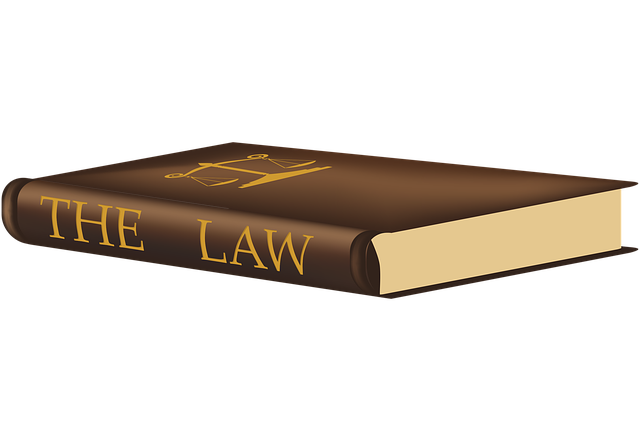Criminal Defense Attorneys play a vital role in protecting individuals' rights during administrative hearings for lesser offenses, aiming to dismiss charges. They leverage strategic legal maneuvers, an understanding of the Administrative Hearings Process Guide, and adaptability to ensure fair treatment. This guide navigates rules, predicts issues, and crafts defenses for complex cases like white-collar crimes. Cross-examination, a key strategy, challenges witness testimonies. Post-trial engagements uphold justice and integrity within the criminal justice system by guiding clients through appeals and motions, actively shaping the Administrative Hearings Process Guide.
“Uncover the critical role of Criminal Defense Attorneys, who serve as guardians of justice and advocates for the accused. This comprehensive guide explores their multifaceted responsibilities, from understanding the intricate Administrative Hearings Process to mastering legal strategies for defense presentations. Learn effective cross-examination techniques and post-trial actions that ensure a fair and just outcome. Discover how these attorneys navigate complex systems, providing invaluable support to clients facing criminal charges.”
- Understanding Criminal Defense Attorneys' Role
- Navigating Administrative Hearings: Step-by-Step Guide
- Legal Strategies for Effective Defense Presentations
- The Art of Cross-Examinations in Court Proceedings
- Post-Trial Actions: Ensuring Justice Continues
Understanding Criminal Defense Attorneys' Role

Criminal Defense Attorneys play a pivotal role in safeguarding individuals’ rights within the criminal justice system. Their primary duty is to ensure that their clients receive fair treatment during all stages of the investigative and enforcement process, from initial questioning to trial or administrative hearings. These attorneys are adept at navigating complex legal procedures, providing crucial guidance to their clients, and presenting compelling arguments to challenge the prosecution’s case.
Understanding the Administrative Hearings Process Guide is a significant aspect of this role. Many criminal cases, especially those involving lesser offenses, can be resolved through these hearings. A well-prepared Criminal Defense Attorney can advocate for their client’s interests, aiming for the complete dismissal of all charges. By employing strategic legal maneuvers and leveraging knowledge of applicable laws, they strive to protect their clients’ rights and ensure just outcomes.
Navigating Administrative Hearings: Step-by-Step Guide

Navigating Administrative Hearings involves a series of strategic steps for Criminal Defense Attorneys to ensure fair representation for their corporate and individual clients. The process begins with a thorough understanding of the hearing’s scope and purpose, as well as the regulations governing the specific agency or entity involved. This comprehensive knowledge is key in preparing compelling arguments that counter the allegations presented by prosecutors or regulatory bodies.
Next, gathering and organizing relevant evidence becomes paramount. Attorneys should meticulously document all facts, witness statements, and legal precedents that support their client’s case. Leveraging an unprecedented track record of winning challenging defense verdicts can also bolster their credibility during these hearings. Throughout the process, attorneys must remain agile, adapting their strategies in real-time based on new information or developments, ultimately aiming to protect their clients’ rights and interests effectively.
Legal Strategies for Effective Defense Presentations

In preparing for a criminal defense presentation, attorneys must employ strategic legal tactics to effectively guide their clients through complex judicial processes, including administrative hearings. A meticulous process guide is essential, especially when navigating the intricacies of white-collar and economic crimes cases. This involves thoroughly understanding the specific rules governing these proceedings, as well as anticipating potential pitfalls and crafting robust defenses accordingly.
By utilizing a comprehensive strategy, criminal defense attorneys can ensure their clients receive a fair trial. This includes gathering compelling evidence, cross-examining witnesses effectively, and presenting a coherent narrative that challenges the prosecution’s case. For instance, in the context of administrative hearings, a well-prepared guide should detail steps to avoid indictment by focusing on factual discrepancies, procedural errors, or alternative explanations for alleged offenses, thereby fostering a more favorable outcome.
The Art of Cross-Examinations in Court Proceedings

The art of cross-examination is a cornerstone of criminal defense strategy, where attorneys skillfully question witnesses to uncover weaknesses in their testimonies and present a compelling case for their clients. This meticulous process involves a dance of questioning designed to challenge the veracity of evidence presented during Administrative Hearings, as outlined in the Process Guide. A good cross-examiner must be adept at reading body language, understanding implicit meanings, and wielding words with precision to sow doubt in the minds of jurors or administrative listeners.
By employing strategic techniques, defense attorneys can navigate complex legal landscapes, representing both corporate and individual clients alike. Through meticulous questioning, they aim for a complete dismissal of all charges, not just a reduction in sentences or fines. The goal is to expose inconsistencies, biases, or any form of impropriety that might have influenced the original testimony, ultimately strengthening the defense case. This nuanced approach requires a deep understanding of both the law and human behavior, making it a vital skill for attorneys advocating on behalf of their clients in diverse legal settings.
Post-Trial Actions: Ensuring Justice Continues

After a trial, the work of a criminal defense attorney doesn’t necessarily end. Post-trial actions are crucial in ensuring justice continues and upholding the rights of their clients. Many cases require further legal maneuvering, especially when appealing a verdict or navigating complex administrative hearings. These processes demand meticulous attention to detail and a deep understanding of both case law and the specific rules governing these proceedings.
For his clients’ sake, an attorney must guide them through potential appeals, motions for new trials, or even white-collar defense strategies if allegations involve financial crimes. Across the country, legal professionals play a vital role in shaping the administrative hearings process guide, ensuring fairness and adherence to procedural laws. This ongoing commitment guarantees that justice is not only served during trial but remains intact throughout every stage of the criminal justice system.
Criminal defense attorneys play a pivotal role in ensuring fairness within the criminal justice system. By understanding their unique responsibilities, from navigating complex legal strategies to mastering cross-examinations and post-trial actions, individuals can effectively guide clients through even the most challenging cases. This comprehensive guide on administrative hearings process, coupled with a deep dive into various defense presentation techniques, equips readers with invaluable knowledge for advocating justice in our courts.






